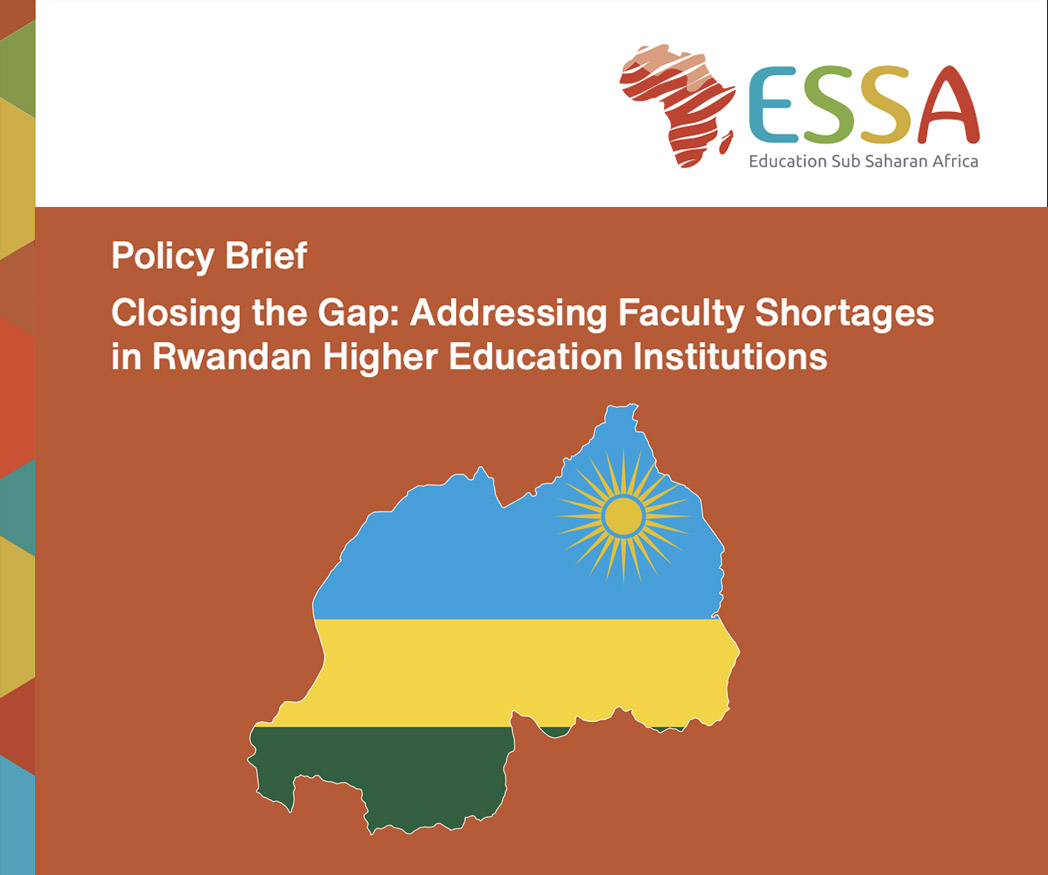Closing the Gap: Addressing Faculty Shortages in Rwandan Higher Education Institutions

This policy brief focuses on addressing the shortage of faculty members in Rwandan higher education institutions.
The brief identifies several critical areas for improvement, including establishing student-teacher ratio benchmarks and improving gender parity in faculty recruitment. It also calls for increased investment in faculty development, better retention strategies, and systematic data management.
Highlights
-
There is a significant faculty shortage in Rwandan higher education institutions, with about 2,900 more faculty needed to meet 2021 student-teacher ratio goals.
-
Gender disparity in faculty is notable, with women making up only 18.8% of academic staff. By 2030, Rwanda will need over 12,500 new faculty members, including 2,700 women, to meet enrolment growth and gender parity goals.
-
Natural sciences and mathematics face the largest faculty gaps, requiring more than 50% of the additional hires by 2030.
Recommendations
The brief recommends setting national guidelines for student-teacher and gender ratios, promoting gender parity, enhancing faculty development with better training and pay, and improving data management. It also calls for focusing on disciplines with critical student-teacher ratio gaps, like education and sciences.
Download the brief to learn more
This Policy Brief is based on the Demographics of African Faculty in the East African Community (DAF-EAC) study that was conducted in South Sudan and five other EAC partner states, specifically Burundi, Kenya, Rwanda, Tanzania, and Uganda, between 2021 and 2023.